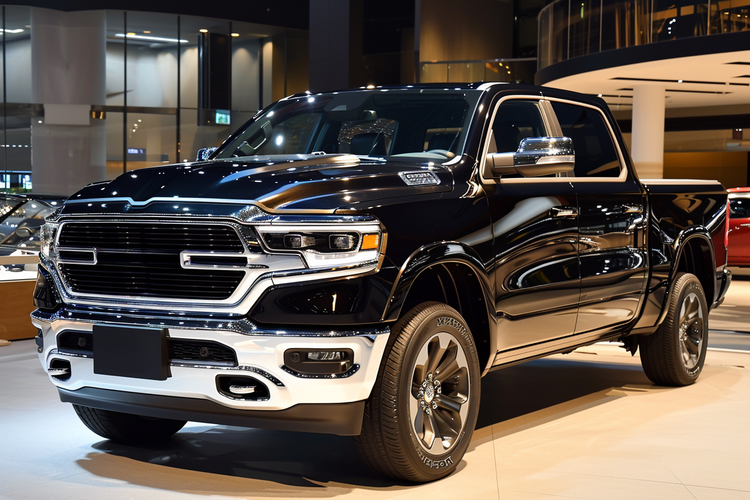Affordable Tips for Buying Cars at Police Impound Auctions
Police impound auctions can offer lower-priced vehicles seized or abandoned by law enforcement and government agencies. With research and preparation, buyers may find a range of vehicles at these auctions. This guide explains how to find and participate in police impound auctions.

Police impound auctions represent an often-overlooked opportunity for vehicle buyers seeking affordable alternatives to traditional dealerships. These auctions feature vehicles that have been confiscated by law enforcement agencies for various reasons, including criminal activity, traffic violations, or abandonment. Local governments and police departments regularly conduct these auctions to clear storage space and generate revenue. With proper research and preparation, these events can yield significant savings for informed buyers willing to navigate the auction process.
What are Police Impound Auctions?
Police impound auctions are government-sanctioned sales where vehicles seized by law enforcement agencies are sold to the public. These auctions typically include cars, trucks, motorcycles, and sometimes boats or other vehicles that were impounded due to legal infractions, abandoned on public property, or seized during criminal investigations. Once legal proceedings are complete and owners have had sufficient opportunity to reclaim their property, unclaimed vehicles are prepared for auction. These events are typically conducted by local police departments, sheriff’s offices, or contracted auction companies, and may be held in-person or online. The primary purpose is to recover storage costs and clear valuable space in impound facilities while providing revenue for local government operations.
The Benefits of Buying at Police Auctions
Purchasing vehicles at police impound auctions offers several distinct advantages compared to traditional car buying methods. The most compelling benefit is the potential for significant cost savings, with vehicles often selling for 30-70% below their market value. This price advantage exists because the primary goal is quick disposal rather than profit maximization. Additionally, these auctions frequently feature diverse vehicle selections, from economy cars to luxury vehicles and specialty automobiles that might otherwise be difficult to find. Unlike private sales, government auctions typically provide transparent vehicle histories and clear titles, reducing concerns about hidden legal issues. For buyers with mechanical knowledge or those willing to invest in potential repairs, these auctions present opportunities to acquire vehicles at prices that account for their condition, making them particularly attractive for budget-conscious shoppers.
Types of Vehicles Available
Police impound auctions feature a surprisingly diverse range of vehicles. Economy cars and family sedans typically constitute the majority of offerings, making these auctions particularly valuable for practical transportation seekers. However, luxury vehicles from brands like Mercedes-Benz, BMW, and Lexus occasionally appear when seized during criminal proceedings. Commercial vehicles, including vans, trucks, and utility vehicles, are also commonly available, attracting small business owners and contractors. Specialty vehicles such as motorcycles, recreational vehicles, and even boats may be included depending on the jurisdiction and auction size. Government fleet vehicles—often well-maintained but aging sedans, SUVs, and trucks previously used by various agencies—regularly appear at these auctions with documented maintenance histories. The vehicle condition spans from nearly new to requiring significant repairs, with pricing generally reflecting these variations.
How to Participate in a Police Impound Auction
Participating in police impound auctions requires understanding specific procedures that vary by jurisdiction. Most auctions require pre-registration, where potential bidders must provide identification and sometimes a refundable deposit. Before bidding, serious participants should attend the vehicle preview sessions, typically scheduled a day or two before the auction. These previews allow inspection of vehicles, though starting engines or test drives are usually prohibited. Bring a flashlight, tire pressure gauge, and fluid testing tools to assess vehicle condition thoroughly. On auction day, arrive early to secure registration and review the vehicle list. Establish a maximum bid for desired vehicles and adhere strictly to this limit to avoid emotional bidding. Payment methods typically include cash, certified checks, or credit cards, with full payment often required immediately after winning a bid. Most auctions provide only minimal documentation, so budget for potential registration fees and necessary repairs after purchase.
Finding Police Impound Auctions
Locating police impound auctions requires strategic research across multiple channels. Official government websites for local police departments, sheriff’s offices, and municipal authorities regularly post upcoming auction announcements, often including inventory lists and viewing times. Local newspapers and community bulletins frequently publish legal notices about these events in their classified sections. Online auction aggregator websites like GovDeals.com, PublicSurplus.com, and GSAAuctions.gov compile government auctions nationwide, allowing users to search by location and vehicle type. Social media platforms and auction-specific email newsletters provide timely notifications about upcoming events. Additionally, contacting local law enforcement agencies directly can yield information about regular auction schedules that might not be widely advertised. For serious buyers, developing relationships with auction staff can provide insider knowledge about upcoming inventory and auction patterns.
Understanding Auction Pricing and Value Assessment
When considering purchases at police impound auctions, understanding realistic pricing expectations is essential for making informed decisions. Vehicle prices at these auctions vary significantly based on condition, popularity, and auction attendance.
| Vehicle Type | Typical Discount Range | Average Starting Bid | Additional Costs |
|---|---|---|---|
| Economy Cars | 40-60% below retail | $500-$2,000 | $200-$1,000 repairs |
| Family Sedans | 30-50% below retail | $1,000-$4,000 | $500-$1,500 repairs |
| Luxury Vehicles | 50-70% below retail | $3,000-$10,000 | $1,000-$3,000 repairs |
| Trucks/SUVs | 30-45% below retail | $2,000-$8,000 | $800-$2,500 repairs |
| Motorcycles | 40-60% below retail | $500-$3,000 | $300-$1,200 repairs |
Prices, rates, or cost estimates mentioned in this article are based on the latest available information but may change over time. Independent research is advised before making financial decisions.
Successful bidders should budget not only for the purchase price but also for post-auction expenses including registration fees, potential back taxes, transportation costs, and necessary repairs. Research comparable vehicles using resources like Kelley Blue Book or NADA guides before attending, and subtract estimated repair costs from the market value to determine your maximum bid. Remember that vehicles are typically sold “as-is” without warranties, making mechanical knowledge or a trusted mechanic’s pre-purchase inspection particularly valuable when available.
Police impound auctions represent a viable alternative for cost-conscious vehicle buyers willing to accept some risk in exchange for potential savings. Success at these auctions depends largely on thorough preparation, realistic expectations, and disciplined bidding strategies. By understanding the auction process, researching available vehicles, and carefully assessing value versus potential repair costs, buyers can navigate these government sales effectively. While not every auction purchase will represent exceptional value, informed participants regularly find reliable transportation at prices significantly below retail markets, making these auctions a worthwhile consideration for budget-conscious consumers.




